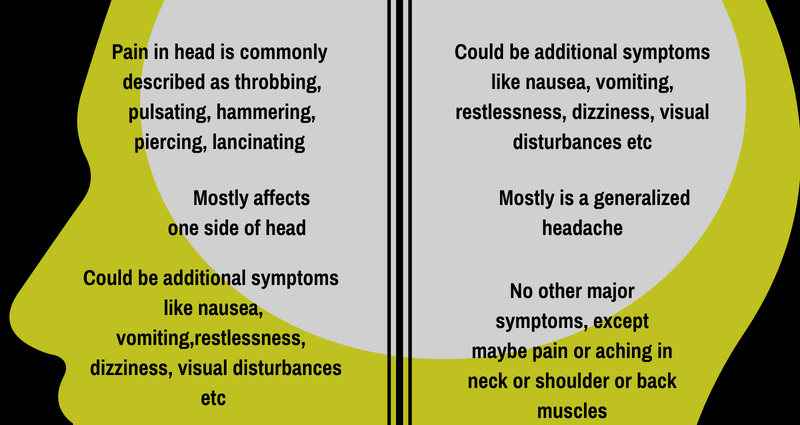Werrej
The fact of being migraine or migraine is often seen as inevitable. We owe it to ourselves to live with migraines because we are quite simply prone to them. Fortunately, this is not entirely true, even if it is accepted that some people, mostly women, will be more prone to migraines than others, without really knowing why.
Of course, the hormonal fluctuations of the menstrual cycle and the postpartum period are often involved, but they do not explain all cases of migraine and should not prevent the search for other possible causes and treatments to get rid of it. a migraine that lasts.
Fil-każijiet kollha, unusual head pain due to its onset, intensity, duration or accompanying signs (nausea, vomiting, blurred vision, fever, etc.) must iħeġġeġ biex tikkonsulta b'mod urġenti.
Permanent migraine: why does the pain persist?
We are talking about the state of uġigħ ta 'ras emigranja when a headache persists beyond 72 hours which initially had the characteristics of a migraine (intense headaches associated with nausea, intolerance to noise and light), and which changes over time days in one uġigħ ta ’ras kroniku. This is almost always associated with drug abuse and an anxious or anxio-depressive state. In this case, adjustment and drug withdrawal constitute the first means of combating this type of chronic migraine.
In 2003, a scientific study published in the journal Neurology resulting from the collaboration between English and American neurologists, had made it possible to highlight five possible reasons for treatment failure headaches, and therefore the persistence of migraines.
- An incomplete or incorrect diagnosis;
Thinking that a migraine is simply due to fatigue or hormones, one is quickly tempted to minimize the pain, and try to cope with it. However, a permanent migraine is not to be neglected because it can hide a more serious condition, and because it can disappear, provided the correct diagnosis is made and the correct treatment is used.
- Important aggravating factors have been overlooked;
Many psychological factors, such as fatigue, anxiety, stress but also food, such as alcohol, can cause recurrent migraines. It is important to identify them to avoid seizures in the future.
- Medicines are not suitable;
When faced with chronic headaches, it is not always easy to find the right treatment, the right medications. Sometimes it can be useful to consult again and readjust treatment if symptoms persist, rather than self-medication.
- Non-drug treatment is inadequate;
There are many non-drug approaches to overcome migraine: relaxation, sophrology, acupuncture, herbal medicine, osteopathy … It happens unfortunately that these complementary medicines are not enough or more, and that we need to turn to more “tough” approaches.
- There are other associated factors not taken into account;
Other factors can influence the chronicity of migraines or the effectiveness of treatments, such as suffering from depression, having suffered a head injury in the past or suffering from high blood pressure. That is why kura komprensiva taking into account all past and present symptoms is important in chronic headaches.
Permanent migraine: when to consult a neurologist?
Faced with a migraine that is long-lasting, or that persists despite the eviction of contributing and aggravating factors (light, sounds, stimulants, fatigue, anxiety, stress …) and does not pass despite the taking of drugs usually prescribed (analgesics of the type paracetamol, non-steroidal anti-inflammatory drugs, rye ergot derivatives), it is recommended to turn to a migraine specialist: a neurologist. Because if a general practitioner or even a gynecologist is trained to deal with a transient migraine attack, they are less able to deal with a chronic migraine. Brain magnetic resonance imaging (MRI) may be considered to diagnose a possible cause of these chronic migraines and rule out any more severe neurological disease.










